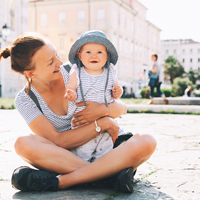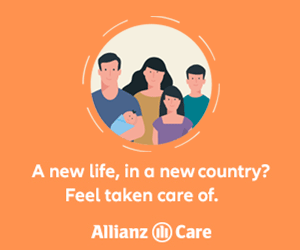Housing services for you, The accomodation tips for the expat to Hanoi, Vietnam
15 years ago
The first thing, the expat to Vietnam need to know is accommodation
Don't hesitate to contact VietLand Co., Ltd; the leading real estate agent in Hanoi will help you with every thing that you almost need to start life in Vietnam.
www.vnhome.com.vn
email: [email protected]
May you need an apartment, house, flat, rooms, workshop, office or any property requirement; please contact this company, the one that you can trust in
Other things you should also read through to understand further Vietnam
1. GENERAL INFORMATION
According to archaeological discoveries made at Do Mountain, it is believed that life in Vietnam began as far back as 300,000 years ago. Officially, the history of Vietnam stretches back 4,000 years when it was founded by the Hung Kings. It was then named Van Lang.
When speaking upon the history of Vietnam, it is important to note the large role played by the French in Vietnam. It began in 1858, when the French took over Danang in southern Vietnam. Over time, more and more territory was won over by the French. It wasn't until 1954, when the French surrendered to to the Viet Minh, ending the French Indochina War, that the French colonial control in Vietnam ended.
The immediate image in the minds of most people at the mention of Vietnam is that of the war fought against the United States some twenty years ago. Most people think of the country only in terms of the American conflict in Indochina. The war ended nearly twenty years ago, and today, despite lingering signs of past American involvement, the situation in Vietnam is markedly different. People have finally begun to look at the country from another perspective, now that travelers and tourists from the West are being welcomed into what was once a forbidden country. It may take a bit more effort and tenacity to plan an excursion into Vietnam than it would for another Southeast Asian country, but Vietnam has much to offer in terms of culture and sights.
2. WEATHER CONDITIONS
The weather in the southern part of Vietnam is tropical. It is monsoonal in the north, bringing a hot, rainy season from mid-May to mid-September and a warm, dry season from mid-October to mid-March. Occasional typhoons from May to January bring extensive flooding to the middle regions of Vietnam.
3. PEOPLE AND CULTURE
The vast majority of the population is Vietnamese with minute percentages of Chinese. The Viet culture originated on the delta of the Red River and the Ma River where the Viet people cultivated paddy fields. They led a simple farming life in small villages, usually living around a communal house. Today the people living in the countryside follow this lifestyle. The Viet people are influenced by Confucianism, in particular the principle of respect for their elders.
In spite of the immense suffering of the Vietnamese and the somewhat ruined state of the country, they are generally warm and friendly, and surprisingly, the Vietnamese bear little if any resentment or bitterness toward Americans. Children in the streets will commonly greet visitors with the name Lien Xo, which means Russian, but they will easily be corrected if you respond, "Hello!" or "Good morning" and explain you are an American, European or Australian, etc.
Ethnic Groups: The country is predominantly 85-90% Vietnamese, 3% Chinese, ethnic minorities include Muong, Thai, Meo, Khmer, Man, Cham, and other mountain tribes.
Languages: Vietnamese is the official language; French, Chinese, English, Khmer and tribal dialects (Mon-Khmer and Malayo-Polynesian) are also spoken.
Religion: Buddhist, Confucian, Taoist, Roman Catholic, indigenous beliefs, Islamic and Protestant.
4. LOCAL CUSTOMS
General: Be firm, yet diplomatic when dealing with officials who will often be very rigid. In the case of misunderstanding, patience is the best policy.
Small gifts such as cigarette lighters, pens, foreign cigarettes, liquor, perfume and even shampoo are greatly appreciated by anyone you wish to make friends with in Vietnam.
Out of politeness, always ask permission before taking photos of people. The same rule of thumb also applies to photos taken in places of worship. Permission will almost always be granted.
A gentle handshake is the most appropriate manner of greeting.
Be very discrete about giving anything to beggars frequently encountered in Ho Chi Minh City. If anyone is seen giving handouts to a beggar, he or she may end up being pursued by a mob of other beggars. This does not help create a good image for foreigners; it gives them instead the reputation of being easy to hit up for money.
Beware of pickpockets. Keep your ID and passport in a safe place and carry only photocopies of those items.
Remove your shoes before entering Buddhist pagodas. Small donations placed in the boxes found in temples are appreciated. It is acceptable to keep your shoes on within Chinese pagodas.
Never let the soles of your feet face other people or any sacred monument, such as a statue of Buddha.
5. CURRENCY
The dong (D) is the official currency in Vietnam.
Bank notes currently in circulation are in denominations of 100d, 200d, 1,000d, 2,000d, 5,000d and 10,000d.etc
Notes under 200d have little value and are rarely used.
The U.S. dollar is more or less a second currency in Vietnam. Other foreign currencies are not readily accepted. A large supply of US$1, US$5 and US$10 are almost essential for tipping, for small expenses and for hotel bills. U.S. money is so common that change will frequently be given in dollars.
You may bring in an unlimited amount of foreign currency as long as it is declared on the forms provided by customs officers. Foreign currency can be exchanged for dong at your hotel or at the State Bank of Vietnam.
6. THINGS TO KNOW
Population: 86,500,000
Capital: Hanoi
Flag: The flag of Vietman is red with a large yellow five-pointed star in the center.
Shop Hours: Shops run from 7 or 8am to 11 or 11:30pm. Some are open from 1 or 2pm to 4 or 5pm.
Bank Hours: Most banks are open from 7 or 8am to 11 or 11:30pm. Some are open from 1 or 2pm to 4 or 5pm.
Holidays:
* January 1 - Solar New Year's Day
* February 3 - Anniversary of the Foundation of the Communist Party of Vietnam.
* January/February - Tet (Tet Nguyen Dan). The most important Vietnamese annual festival. This marks the new lunar year and the advent of spring. This is a three-day holiday, usually at the end of January or the beginning of February (according to the solar calendar).
* April 30th - Liberation Day, the day on which Saigon (Ho Chi Minh City) fell to Hanoi in 1975. This holiday is commemorated nationwide.
* May 1 - May Day
* May 19 - Birthday of President Ho Chi Minh
* September 2 - National Day of Vietnam
Time: Vietnam is 11 hours ahead of Eastern Standard Time and 14 hours ahead of Pacific Standard Time.
Tipping: Tipping is not customary in Vietnam, but it is enormously appreciated. A 5-10% tip for a meal is a very small amount of money, but to the average Vietnamese, it could easily equal a day's wages. Avoid tipping too much, as it will set a precedent for others.
Restaurants: Government-run restaurants catering to tourists add a 10% service charge to the bill.
Porters: Porters, if they are available, can be tipped with American coins.
Hotel maids: Government-run hotels catering to tourists charge an automatic 10% service fee.
Taxis: Generous tips are not necessary. A small gratuity, however, is expected by cab drivers.
7. VISAS AND PASSPORT
Passports and visas are required for entry into Vietnam. The best place to obtain a visa for Vietnam is Bangkok. The visa will specify where you will be arriving and where you will be leaving, in addition to how long you can stay.
Formerly, tours had to be booked to obtain a visa, but this is no longer the situation. Potential visitors to Vietnam must fill out three applications for entry and exit visas, accompanied by three passport photos 4cm x 6cm. One of the applications must be sent to the most convenient diplomatic or consular mission of the Socialist Republic of Vietnam. The other two applications/photos are carried with you and handed in at the first point of entry. Passports and visas are required for entry into Vietnam. The best place to obtain a visa for Vietnam is Bangkok. The visa will specify where you will be arriving and where you will be leaving, in addition to how long you can stay.Passports and visas are required for entry into Vietnam. The best place to obtain a visa for Vietnam is Bangkok. The visa will specify where you will be arriving and where you will be leaving, in addition to how long you can stay.
Formerly, tours had to be booked to obtain a visa, but this is no longer the situation. Potential visitors to Vietnam must fill out three applications for entry and exit visas, accompanied by three passport photos 4cm x 6cm. One of the applications must be sent to the most convenient diplomatic or consular mission of the Socialist Republic of Vietnam. The other two applications/photos are carried with you and handed in at the first point of entry. Passports and visas are required for entry into Vietnam. The best place to obtain a visa for Vietnam is Bangkok. The visa will specify where you will be arriving and where you will be leaving, in addition to how long you can stay.
Formerly, tours had to be booked to obtain a visa, but this is no longer the situation. Potential visitors to Vietnam must fill out three applications for entry and exit visas, accompanied by three passport photos 4cm x 6cm. One of the applications must be sent to the most convenient diplomatic or consular mission of the Socialist Republic of Vietnam. The other two applications/photos are carried with you and handed in at the first point of entry.
You must also provide the following information to Vinatour, via fax or telephone:
Surname and first name Date and place of birth Nationality Present place of residence Profession Time and point of entry and exit
Some Embassies of the Socialist Republic of Vietnam:
Australia
6 Timbarra Crescent
O'Malley
ACT 2603
Tel (062) 866059
France
62, rue Boileau
75016 Paris
Tel 4524-5063 or 4527-6255
Mexico
Sierra Ventana 255
11000 Mexico, DF
Tel 540-1612
Thailand
83/1 Wireless Road
Bankok
Tel (02) 251-7201
United Kingdom
12-14 Victoria Road
London W8 5RD
Tel 937-1912
8. CUSTOMS REGULATIONS
Duty-Free Items: Visitors may import 200 cigarettes, 50 cigars or 250g of tobacco, 1 liter of wine, 1 liter of liquor and an unlimited amount of film. Commercial goods and items of high value being taken out of Vietnam require export permits from the Customs Service. Antiques may be confiscated permanently. No local currency may be taken out of the country.

 Allianz Care
Allianz Care![]() Vietnam Forum
Vietnam Forum
![]() Contribute
Contribute
 Healthcare in Vietnam
Healthcare in Vietnam
 10 Tips for Living in Vietnam
10 Tips for Living in Vietnam

 Vietnam
Vietnam
